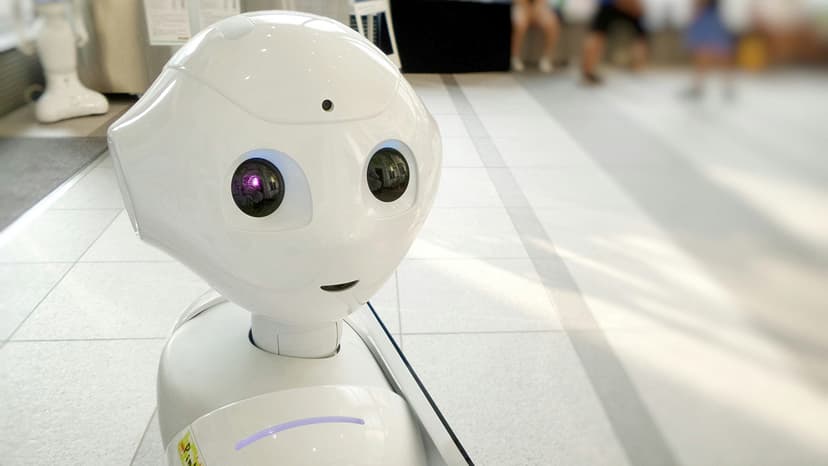Will Generative AI Replace Customer Service Agents?
The rapid advancement of generative AI technologies, like ChatGPT, has reshaped industries across the board, and customer service is no exception. The question now isn’t whether AI can be used to assist customer service agents, but whether it can fully replace them. The truth is, the benefits of using AI in customer service are so significant that replacing many human agents with AI might not just be an option, but an inevitable outcome.
How Does AI Outperform Human Agents?
Speed and Efficiency
Generative AI can process and respond to customer queries in seconds. Unlike human agents, who need time to think, type, and look up information, AI can instantly generate responses based on a massive database of knowledge. This allows customers to get the answers they need almost instantly, which improves customer satisfaction.
By automating common tasks like answering FAQs, providing order updates, or troubleshooting basic issues, AI significantly cuts down response times. Human agents simply cannot match the efficiency that AI can offer at scale.
Cost-Effectiveness
One of the most compelling reasons for businesses to adopt AI in customer service is cost. Hiring, training, and retaining human agents is expensive. In contrast, once an AI system is trained and set up, it can handle thousands of inquiries at once without needing breaks, vacations, or sick days. Companies can drastically reduce their customer service overhead while maintaining—or even improving—response quality.
24/7 Availability
Human agents work in shifts, and covering round-the-clock customer service requires a large team. AI, on the other hand, can work nonstop, handling customer requests at any time of day, across time zones. This means customers no longer have to wait until business hours for assistance. AI-powered agents ensure your business is always “on,” improving customer satisfaction while reducing the need for night-shift employees.
Consistent and Reliable Responses
Generative AI can provide consistent and accurate responses every time, ensuring there’s no room for human error. Where a human agent might accidentally give incorrect information or struggle with tone, AI remains steady and professional in its delivery. Customers receive a reliable experience that reinforces the brand’s commitment to quality service.
Will AI Replace Human Agents Entirely?
The growing reliance on AI technologies has sparked a debate about whether human agents will still be necessary in the near future. The short answer: For many roles, AI could indeed replace humans.
Handling Repetitive Tasks
For repetitive, straightforward tasks, AI is already outperforming human agents. AI can efficiently manage inquiries such as:
- Account or order status checks
- Answering FAQs
- Basic troubleshooting
- Appointment scheduling
- Simple returns or exchanges
By taking over these tasks, AI allows companies to reduce their workforce significantly, handling the bulk of the customer service workload without any human intervention.
Tackling More Complex Issues
AI continues to improve at handling more nuanced or complex inquiries. While it's true that human agents have an edge when it comes to empathy and understanding certain emotional contexts, AI is rapidly evolving. With advancements in natural language processing, AI is becoming better at interpreting customer sentiments and adjusting its responses accordingly.
In the near future, even more complex issues could be handled by AI, reducing the need for large teams of human agents. Human input will likely be reserved for only the most complicated cases, while AI handles the majority of customer interactions.
Why Are Companies Moving Towards AI-Powered Customer Service?
Big companies are already embracing AI to improve their customer service while reducing costs. Take Amazon, which uses AI-powered chatbots to streamline customer queries and processes, minimizing the need for human intervention. Similarly, Uber employs AI to handle driver and rider inquiries, offering fast solutions without the need for human agents.
Companies are driven by several key factors:
- Scalability: AI can manage an unlimited number of inquiries simultaneously, something that would require a massive human workforce.
- Cost savings: By using AI instead of human agents, businesses can drastically cut labor costs while maintaining—if not improving—service levels.
- Consistency: AI delivers uniform responses, which helps build customer trust and reinforces brand identity.
What Are the Implications for Customer Service Jobs?
With AI taking over many customer service functions, it’s likely that we will see fewer human agents in the workforce. While AI can’t yet replace humans in every situation, the trajectory is clear. Over time, companies will need fewer human agents as AI becomes more capable of handling increasingly complex tasks.
For workers in the customer service industry, this means adapting to the changing landscape will be key. While some jobs will disappear, new roles may emerge in managing, optimizing, and training AI systems. Those who can learn how to work alongside AI tools will have a place in the evolving job market, but for many, the traditional role of a customer service agent may no longer exist.
Is an AI-Powered Future Inevitable?
With the efficiency, cost-effectiveness, and scalability that generative AI offers, it seems inevitable that more businesses will shift towards AI-powered customer service. Faster, more efficient, and consistent service means happier customers. The replacement of human agents by AI is already underway in many industries. As AI technologies improve, the trend will only accelerate.












